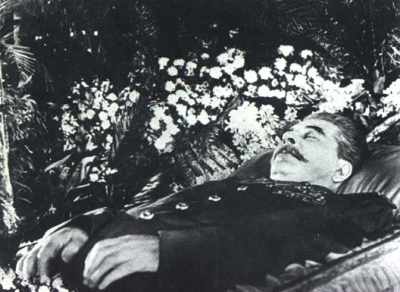
Alex Ross, music critic of The New Yorker and blogger at The Rest Is Noise, gave a presentation yesterday on the topic of “Hitler and Stalin as Music-Lovers.” This was the latest installment of the Musicology Colloquium at the Peabody Institute, in the Cohen-Davison Theater. Alex began by reviewing some of the evidence about the musical taste of both dictators, with the eventual goal of being able to say something not only about their relationships to music -- quite different from one another -- but also about how music can be served and disserved by authoritarianism. Alex drew this material from chapters in his forthcoming book, The Rest Is Noise: Listening to the Twentieth Century, which he describes as "a history of the twentieth century which happens to have music as its subject."

 As I mentioned to Alex afterward, I wonder if Hitler suggested or approved of the music that Leni Riefenstahl used in her propaganda films for Hitler. The music in Triumph des Willens (1935), for example, does not strike me as matching perfectly to Hitler's demanding taste -- save the excerpts from Wagner's Die Meistersinger von Nürnberg, of course. The film also features new music, pretty retrogressive and almost folksy, by Herbert Windt and a song, "Die Fahne hoch" by Horst Wessel, all of which is the main sound element, since other than Hitler's speeches, Riefenstahl makes her point mostly through some of the most arresting and subversive images ever created. We can certainly all look forward to the publication of Alex's book next year.
As I mentioned to Alex afterward, I wonder if Hitler suggested or approved of the music that Leni Riefenstahl used in her propaganda films for Hitler. The music in Triumph des Willens (1935), for example, does not strike me as matching perfectly to Hitler's demanding taste -- save the excerpts from Wagner's Die Meistersinger von Nürnberg, of course. The film also features new music, pretty retrogressive and almost folksy, by Herbert Windt and a song, "Die Fahne hoch" by Horst Wessel, all of which is the main sound element, since other than Hitler's speeches, Riefenstahl makes her point mostly through some of the most arresting and subversive images ever created. We can certainly all look forward to the publication of Alex's book next year.